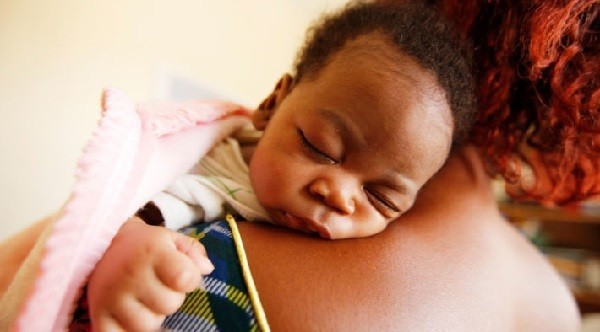
The United Nations has disclosed that no fewer than 22,000 Nigerian children get infected with HIV annually.
The UN system made the statement on Tuesday at the National dialogue meeting for the prevention of mother-to-child transmission of HIV in Nigeria, otherwise known as vertical transmission of HIV.
Speaking on behalf of the UN was Mr Claes Johansson, Chief of Management for Results, United Nations Children’s Fund (UNICEF), who described the meeting as a crucial one for Nigeria to continue onward dialogue on what can be done and the ways of eliminating the vertical transmission of HIV.
”We are working within a framework to map out a strategy that we will work with for the next five years along with Nigeria.
”Ending the vertical transmission of HIV AIDS is one of the key actions that will also help end pandemics, which is what the global world is looking forward to.
”However, we have so much to do and a long way to go, especially with the mother-to-child-transmission taking about 32 percent and one out of seven being infected on a monthly basis is a Nigerian with about 22, 000 infected yearly.
”This is a situation that is simply not acceptable and for all these children who get infected about two third of them do not get treatment.
”So, we in the global community want the Nigerian government to tell us what their sustainable strategic plans are and what they need to eliminate vertical transmission. The UN and its affiliated agencies and bodies are always willing to help Nigeria put an end to PMTCT.
”Let us know your priorities, so that we can assist and help map out strong, sustainable ways to eliminating vertical transmission,” Johansson said.
Emphasising the need for a better strategy, the NACA Director General, Dr Gambo Aliyu, said that it was more of the strategy not working rather than the PMTCT.
He explained that in 2016, there were about 13,000 infected pregnant mothers that were not getting treatment, which had risen to 421,000 as at 2019.
Aliyu attributed the rise to the fact that many pregnant women were not visiting health facilities, adding that as part of the strategies to be discussed at the dialogue was how to get the facilities to the women, if they were not willing to come to the facilities.
Dr. Betta Edu, Cross Rivers Commissioner for health, who spoke on behalf of health commissioners of all the 36 states of the federation, said that it was equally important to work alongside other HIV related organisations and societies in order to make the PMTCT a success.
The Minister of Health, Dr Osagie Ehanire, has also expressed concern over new paediatric HIV infections in children aged zero to four years.
He expressed his worry during a national dialogue on Prevention of Mother to Child Transmission of HIV on Tuesday in Abuja.
The NAN reports that the dialogue was organised by the National AIDS/STIs Control Programme of the Federal Ministry of Health.
He said that in spite of significant achievements in HIV Programme, there were persisting poor outcomes in PMTCT, noting that the dialogue was prompted by the urgency to scale-up sustainable programmes for PMTCT of HIV to eliminate new HIV infections among children.
He said, “Nigeria, being one of the 21 priority countries in Sub-Saharan Africa for the elimination of vertical transmission of HIV, committed to and endorsed The Global Plan.
“We agreed to be held accountable for achieving the set targets by 2015. Since then, we implemented several pillars cutting across leadership, policy and coordination.”
He, however, said that “data still points to overall underachievement in key result areas, including PMTCT.
“For example, PMTCT coverage is only 37 per cent and 21,000 new paediatric HIV infections recorded in children aged zero to four years in 2019.”
According to him, the growing cases are unacceptable.
Ehanire explained that major bottlenecks impacting PMTCT negatively included the variable coverage of Antenatal care services, unmet need for family planning, poor testing coverage for pregnant women and poor tracking and retention in care for HIV exposed infants, among others.
“Overall, we estimate that 88 per cent of pregnant women who test positive are on anti-retrovirals.”
The Permanent Secretary, Ministry of Health, Mr Adulaziz Mashi Abdullahi, said the dialogue was to provide a platform for all actors to agree on the next steps toward achieving the goal of elimination mother-to-child transmission of HIVAIDS in the country.”
(NAN)













